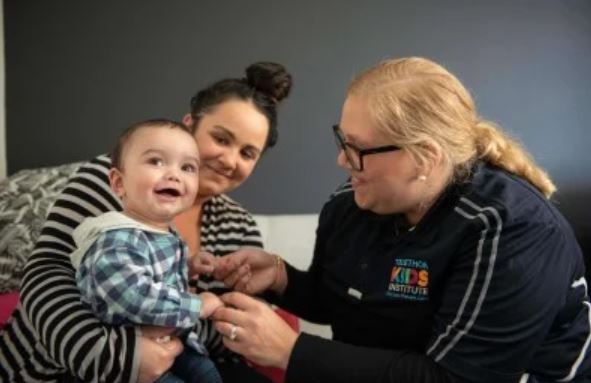Early childhood development index created for UNESCO by Telethon Kids Institute

Children globally will have better access to education thanks to an early childhood development index created by Professor Sally Brinkman, an internationally recognised researcher from Australia’s Telethon Kids Institute.
The Holistic Early Childhood Development Index (HECDI) and a companion manual were produced by Professor Brinkman – who is Program Head of International Child Development and Head of the Child Health, Development and Education Team at the Institute – to help countries assess their progress against Sustainable Development Goal 4.2, and was launched at a special UN meeting in Dubai last month.
The goal, one of 17 interlinked global goals set in 2015 by the United Nations General Assembly, seeks to ensure that by 2030 all girls and boys have access to quality early childhood development, care and pre-primary education so they are ready for primary education.
Professor Brinkman’s index was formally launched by UNESCO International Bureau of Education Director Yao Ydo at a meeting of senior policy makers and finance and education ministers from more than 70 countries. The meeting, hosted by global philanthropic organisation Dubai Cares, was focused on building resilient and sustainable early childhood care and education systems.
“The evidence shows that good quality early childhood care and education provides an indispensable foundation for effective lifelong learning and for personal, social and economic development,” Professor Brinkman said.
“Our goal is for the HECDI to be used by all UN Member States to help them measure the quality of their support to children,” she added.
The tool will guide Member States in considering and quantifying factors which influence children’s learning environments, such as health, nutrition, child and social welfare. This will then enable them to assess how they are tracking against SDG 4.2, and help them to work out where to target further support and improvements.
“The ultimate aim is to ensure every child can access efficient, coordinated early care and education in a way that sets them up to thrive throughout life,” Professor Brinkman concluded.
Popular

Practice
Provider
Quality
Research
Workforce
New activity booklet supports everyday conversations to keep children safe
2025-07-10 09:00:16
by Fiona Alston

Quality
Practice
Provider
Research
Workforce
Honouring the quiet magic of early childhood
2025-07-11 09:15:00
by Fiona Alston

Quality
Practice
Provider
Workforce
Reclaiming Joy: Why connection, curiosity and care still matter in early childhood education
2025-07-09 10:00:07
by Fiona Alston












